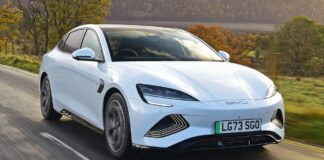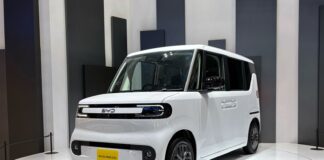IM Motors’ new LS9 SUV, unveiled in China on November 12, 2025, is challenging traditional automotive expectations. Priced from 322,800 yuan (≈ $44,900 USD), the hybrid vehicle boasts a 66 kWh battery offering 402 km of electric range and a combined range of up to 1,508 km. However, it’s the vehicle’s optional lifestyle features — namely, underfloor heating and an integrated portable shower system — that have sparked debate.
The Unusual Additions: Heat, Water, and Controversy
The LS9 introduces two notable extras: a graphene-based underfloor heating system and an “outdoor-luxury” pack featuring a 10-liter heated water tank, shower head, and curtain. These options are not standard and come at an additional cost. Critics question their practicality, noting the limited water capacity (10 liters) and potential design/energy trade-offs. Some see them as unnecessary gimmicks that distract from core automotive functions.
Why This Matters: A Shift in Consumer Demands
The controversy highlights a growing trend in automotive design. Manufacturers are increasingly catering to lifestyle needs, not just transportation. IM Motors’ CTO defends the features, stating they are based on real user demand, particularly in regions where home floor heating is common. The company argues these options enhance convenience for specific groups, such as those who travel frequently or live in colder climates.
Beyond Transport: The Future of Vehicle Utility?
IM Motors emphasizes that these amenities are optional and meant to complement, not replace, the vehicle’s primary function. The LS9’s approach suggests a future where vehicles are more than just machines for getting from point A to point B; they are extensions of home comfort and personal lifestyles. The debate raises a key question: how far should automakers go in blurring the lines between transport and living space?
The LS9’s optional features reflect a wider shift in automotive design, where manufacturers are catering to lifestyle needs beyond basic transportation. This trend suggests a future where vehicles are more than just machines, but extensions of home comfort and personal lifestyles.






















